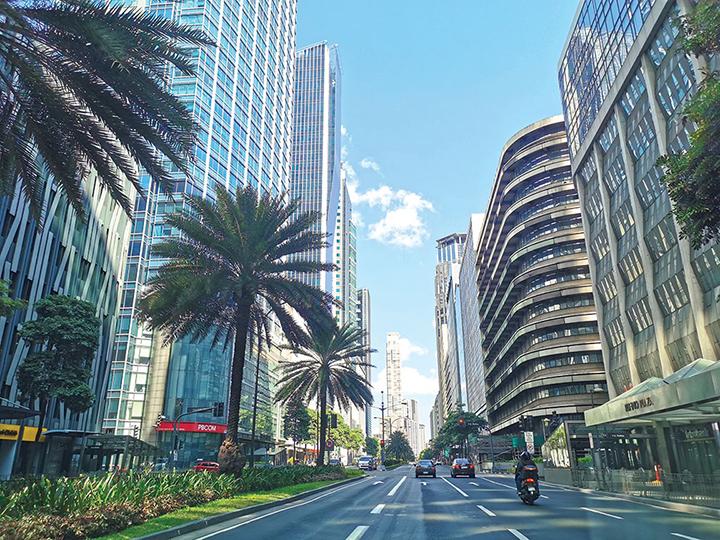
AN economist-lawmaker on Monday revealed that the country loses around P18 billion for each day of lockdown, especially amid coronavirus fears that would hinder an effective reopening of the national economy.
With this, Marikina Rep. Stella Luz Quimbo, co-chairman of House Defeat Covid-19 Committee economic cluster, stressed the need for the passage of an economic stimulus plan to effectively restart the opening of the economy.
According to Quimbo, there are two main obstacles in reopening the economy—first, the liquidity concerns of firms, especially those that did not have revenues during the lockdown yet continued to pay overhead costs, including payroll and interest expenses and the second, obstacle is that so-called fear factor especially among workers, because the country has no mass testing.
“Because of that fear factor, we cannot have an effective reopening of the economy. And this is very costly. For each day of lockdown, we lose about P18 billion in output,” she said during a webinar with University of the Philippines’s School of Economics, Ateneo de Manila and Philippine Economic Society.
“[Of the P18 billion] P12.5 billion [are] in unearned wages—meaning value of output of daily wage and piece rate earners—and payroll costs shouldered by nonessential businesses during lockdown plus about P5.5 billion in unearned corporate income,” added Quimbo in a separate text message with the BusinessMirror.
Moreover, the lady solon, citing the recent National Economic and Development Authority survey with close to 40,000 respondents, said 48.3 percent have been laid off from work, or had no salary during the implementation of the enhanced community quarantine (ECQ).
“So the most dispensable capital, unfortunately, is human capital. As we speak, people are losing their jobs,” she said.
Quimbo added a Gallup International survey also indicates that 34 percent have lost their jobs.
“Next, if the fear factor remains, then we will see continued absenteeism in the work place and market place,” she said.
Ideally, Quimbo said the economic stimulus is in place as soon as the Philippines reopen its economy, “so the bill is for purposes of restarting after we reopen.”
“The increases in government spending being proposed are direct kinds of spending, such as wage subsidies, and budget augmentation for government financial institutions. Tax cuts are certainly helpful but the effects of these are not as immediate as the direct government spending that is needed to restart the economy. So, these tax cuts can come as a separate bill,” she added.
Quimbo also called for the planning of structural reforms to increase economic resilience.
“We should not forget about the longer-term tasks that are also important, especially those that increase the resilience of the economy to shocks,” she said.
She added that “this long-term tasks would include building the capacity of the health sector to allow us to better respond to future pandemics, as well as effectively implementing the Universal Health Care Act.”
“These would also include an enhanced BBB [Build, Build, Build program] because infrastructure has one of the highest multipliers. Structural reforms that will boost the productivity of the agricultural sector should also be included. This is the only way that we can begin to industrialize. Social protection programs such as unemployment insurance should also be part of the plan to boost economic resilience,” she said.
“Some of our short-run interventions also have long-run gains. For example, providing interest-free loans to small businesses in the informal sector is one way of getting them registered and formalizing them, which will help widen the tax base in the future,” she added.
The lawmaker also said the country needs to reopen the economy in a gradual, cautious and informed way.
“This means we first need to do a risk assessment of LGUs, particularly provinces, on the basis of risk of virus spread and risk of having an overburdened health-care system. Then for each risk scenario, there should be specific work-related policies adopted,” she said.
In high-risk provinces, Quimbo said, the government can allow only selected work places that are Covid-19 free in selected sectors, while in medium-risk provinces, authorities can allow all work in selected sectors and then in zero to low-risk areas, officials can also allow all work.
“But there are two important conditions. One is that this reopening should be done in phases and the second condition is that we need a disease surveillance protocol that will be strictly adopted by all LGUs and firms,” she said.
Quimbo said the most important thing needed to remove the fear factor is testing, which, she said, “is the basis for our proposal of appropriating P25 billion for testing kits under [proposed Philippine Economic Stimulus Act].”
P485-billion PESA
House Committee Ways and Means Chairman Joey Sarte Salceda of Albay, also co-chairman of the economic cluster, said the Philippine Economic Stimulus Act (PESA) is now estimated to cost at least P485 billion.
The working draft of the P485 billion-PESA will include:
- P20 billion for test kits
- P130 billion for loans with Land Bank of the Philippines, Development Bank of the Philippines, Small Business Corp. and Philippine Guarantee Corp.
- P25-billion capitalization for National Development Corp.
- P150 billion for individual subsidies under Department of Labor and Employment
- P160 billion for sectoral assistance of Department of Trade and Industry, Department of Tourism, Board of Investments and Department of Transportation.
According to Salceda, the proposed PESA will also include an enhanced BBB program worth P650 billion in three years starting 2021. He said this enhanced BBB is expected to create 1.5 billion jobs.
Salceda earlier said economic point persons for the House and Representatives and the Senate and the country’s economic managers are now discussing ideas “extensively” and sees broad consensus on how the country’s Covid-19 economic recovery plan should look.
 Philippine Economic Society (PES)
Philippine Economic Society (PES)